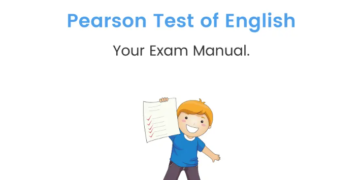Education has entered a new era, where flexibility and accessibility are as valuable as academic rigor. The rise of flexible online education programs transforms how students balance learning with everyday life. Whether it’s access to global instructors or personalized study schedules, online options have revolutionized the educational journey for learners at all stages. For instance, families searching for flexible options in Louisiana schools can now explore a range of accredited online programs tailored to their child’s needs.
This digital transformation empowers learners to create flexible schedules that align with their unique responsibilities, whether balancing full-time jobs, managing family obligations, or pursuing personal goals. Unlike traditional classroom settings that often demand strict attendance and fixed timetables, online learning offers freedom and adaptability. Working professionals can advance their careers without pausing employment, while parents and non-traditional students gain access to education that fits into their daily lives. This flexibility removes barriers that once limited opportunities, ensuring learning is no longer confined to specific times or places. As a result, education becomes more inclusive, accessible, and sustainable for diverse learners.
Flexibility and Convenience
Online education’s greatest strength lies in its flexibility and learner-centric approach. Coursework, lectures, and assessments are accessible 24/7, accommodating those studying outside standard classroom hours. This benefits not only individuals balancing work or family duties, but also young athletes, military families, and those in remote locations. Instead of commuting or relocating, students can attend classes from home, a local library, or anywhere with internet access. For example, many public and private online programs now offer mobile-friendly lessons, making it easier than ever to fit learning into busy lifestyles.
Online education also supports a personalized approach to pacing. Students can linger on complex topics or speed through areas of strength, which promotes educational success. This adaptability is essential for students working part-time, caring for family members, or managing health obligations.
Affordability
Cost remains a leading factor in the decision to pursue further education. Traditional campus programs often incur high prices, including tuition, housing, transportation, and textbooks. In contrast, many online programs cut or eliminate these costs, redirecting savings to tuition and digitally delivered materials. This makes online learning an attractive route for students priced out of conventional programs or seeking to reduce debt while earning a degree or certificate.
Scholarships and flexible payment plans further widen the access net, bringing advanced education within reach for a more diverse range of learners. According to Wharton Executive Education, online programs can reduce college costs by thousands of dollars annually, providing essential avenues for upward mobility.
Development of Self-Motivation and Time Management
Flexible online education places responsibility in the hands of learners. Students must independently schedule coursework, complete assignments, and seek support when necessary. This environment encourages the growth of self-motivation and accountability—qualities that translate to professional and life success. Additionally, self-paced learning hones time management skills. Juggling deadlines, projects, and communication with instructors is excellent preparation for future careers.
In traditional classroom settings, schedules and instructions are rigid. Online education, by contrast, encourages proactive behavior and organizational skills. As highlighted by Boston University Questrom, these soft skills are among the most sought-after by modern employers and set online learners apart in a competitive workforce.
Access to Diverse Courses and Instructors
Geographic boundaries no longer limit educational choices. Online programs connect students with a global network of teachers, industry professionals, and resources. A U.S. student can take a Mandarin course from a teacher based in Beijing or study computer programming with leading instructors from renowned technology hubs. This cultural and professional diversity broadens worldviews and boosts critical thinking.
Additionally, many online schools offer highly specialized subjects, from digital marketing to environmental sciences, that may not be available at local schools. This range ensures learners can access niche or advanced topics crucial for their career paths or interests.
Benefits for Students with Disabilities
Traditional classrooms may present significant barriers for students with physical, sensory, or mental health challenges. Online learning environments remove obstacles, offering customized solutions like closed captioning, screen readers, and adjustable interfaces. Lessons can be paused and reviewed as needed; materials often come in multiple, accessible formats.
This inclusive approach ensures all students have a level playing field, empowering learners who might otherwise be marginalized. Many online schools collaborate with disability services to provide ongoing support and specialized accommodations as needed, making education truly accessible for all.
Conclusion
Flexible online education programs are playing a transformative role in reshaping how people approach learning. By offering adaptability in scheduling and pacing, these programs allow students to balance education with work, family, and other commitments. Compared to traditional schooling, their affordability makes higher learning more accessible to a broader audience. At the same time, the integration of practical, real-world skills ensures learners are better equipped for future challenges. Accessibility is another key strength, enabling students from diverse backgrounds and locations to pursue opportunities that might otherwise be out of reach. With ongoing technological advancements, online education continues to evolve—providing interactive experiences, personalized support, and global connectivity. These innovations position learners for long-term academic, professional, and personal success in today’s fast-changing, knowledge-driven world.










